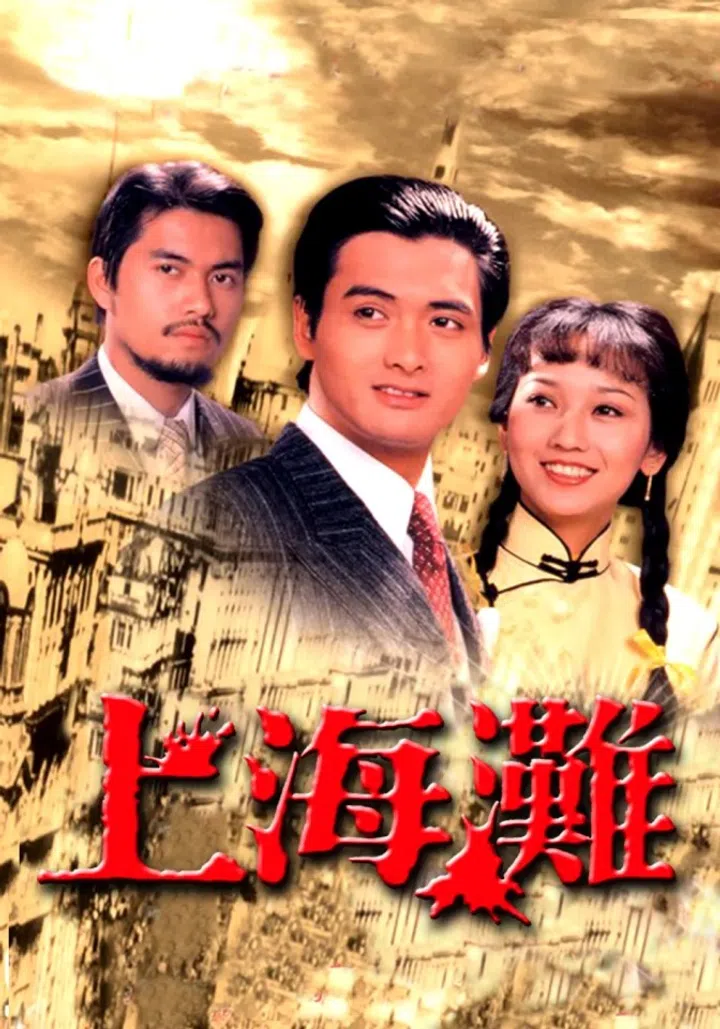A battle for the Hong Kong narrative: Why TVB is losing support among Hong Kongers
Hong Konger Thomas Chan reflects on the decline of TVB, once an icon of Hong Kong's success in entertainment. While business bottom lines and competition are real concerns, the tussle to tell the Hong Kong narrative is at the heart of the strong centripetal forces at work.

During a recent press interview, Li Ruigang, the powerful Chinese media mogul in control of Hong Kong's main broadcaster TVB, lambasted international and local brands for not showing interest in his channel. The embattled business executive blamed "online bullying" from netizens for tarnishing its reputation and luring reluctant advertising clients away.
Advertisers' concerns were not entirely unfounded. TVB recorded a loss of HK$657 million in 2021 and issued a profit warning in early 2022. A post on the company's official LinkedIn page expressing "disbelief" that advertisers picked the channel's rivals despite having higher ratings also sparked controversy. The reality is that years of complacency, the rise of competition, and new rivals have gradually chipped away at the media giant's relevance.
After much trial and error in the formative years, TVB's success formula was born: producing variety shows and TV series that are localised, diverse and creative.
TVB was founded in 1965 by Sir Run Run Shaw of Shaw Studios together with Sir Douglas Clague and Harold Lee Hsiao-wo of the Lee Hysan family to capture the then-nascent television industry in Hong Kong. It began broadcasting in 1967. Sir Run Run Shaw, infused a unique Chinese cultural character in this venture, seeing it as an extension of his Shaw Studios that aimed to revive a cultural China lost since the civil war.
Its inaugural artist training programme started in 1971, and nurtured a generation of blockbusting names that eventually led the city's entertainment scenes, from Chow Yun Fat and Johnny To to even Andy Lau and Tony Leung.
The glory days
After much trial and error in the formative years, TVB's success formula was born: producing variety shows and TV series that are localised, diverse and creative. This allowed the newborn TV channels to stand out in Asia where quality entertainment was still lacking.
During the 70s and 80s, TVB first produced a string of dramas that defined Hong Kong's cultural scene in the Asia Pacific, from Legend of the Condor Heroes Series (《射雕英雄傳》) and The Bund (《上海灘》) to Police Cadet '84 (《新紮師兄》).

It later ventured into overseas markets as cable and rental services, which helped shape the diaspora population's sense of identity and portrayed Hong Kong as a place of inspiration. This mix of fascination and cultural rapport often provided an escape from the socioeconomic struggles of minorities. On a community level, the exported TVB series presented a modernity that Chinatowns could emulate while feeling a sense of cultural relevance.
The influence is easily seen by the fact that some of TVB's celebrities were members of the diaspora themselves. Hailing from Canada, the US or Malaysia, they grew up influenced by these programmes from a young age and were also recruited by TVB singing contests or beauty pageants held in Chinese communities overseas.
...netizens have pointed out that all characters in TVB series live in spacious flats regardless of their social status. In contrast, Hong Kong's housing market is one of the world's most unaffordable.
Yet, TVB's grasp on soft power has since been severely challenged in recent years. Being a victim of its success, contemporary productions are criticised as prosaic and lacking innovation. The old tried-and-tested tricks have long become repetitive, predictable and even tone-deaf.
Many of the series featured the same canned ending scenes, such as the "rooftop barbeque" or group shots of all characters, and netizens have pointed out that all characters in TVB series live in spacious flats regardless of their social status. In contrast, Hong Kong's housing market is one of the world's most unaffordable.
Strong challengers from the region
In the meantime, other Asian Tigers like South Korea have filled in the void. Classics from Autumn in My Heart in the early 2000s to recent hits like Descendants of the Sun have both leveraged and facilitated the Hallyu and made Korea visible to the world.
Amid intense competition, TVB's revenue from overseas paid cable dropped from HK$280 million in 2007 to HK$1.68 million in 2021, and the revenue share of its international-facing channel business dropped from 22% in 2007 to 2% in 2016.
Even as soft entertainment, TVB appears to be serving Beijing's narratives while putting its focus on the Greater Bay Area. Since 2017, many of TVB's prime airtime programmes have been co-produced with or wholly produced by mainland entities.
In contrast, ViuTV's equivalent features organic local voices to a local audience, which found the contestants more relevant and relatable.
Endless Melody (《聲生不息》), its latest singing contest, is branded as a co-production with Chinese streaming platforms and a tribute to the 25th anniversary of the city's handover while drawing some elements of Hong Kong's pop culture. The song contest comes at a time when Beijing is pushing for a China-friendly narrative, melding the older Hong Kong pop songs into a greater China narrative despite the different aesthetics and styles between the two. Many of the guests or stars in TVB's singing context have also long been China-friendly and some have made their political preferences explicit.

In contrast, ViuTV's equivalent features organic local voices to a local audience, which found the contestants more relevant and relatable. A finalist, who has since become a member of a popular girl band Collar, has even paid tribute to those who have left Hong Kong since the protest in her act.
Politics in the picture
It was not only the drama production that faced scrutiny from the audience. Since the large protests that occurred in 2014 and 2019, pro-democracy voices have criticised the broadcaster for being too pro-government and biased against the protesters. TVB News' credibility at that point plummeted to the lowest among all news networks.
The public backlash had real-life commercial consequences. Various brands like Pocari Sweat, Pizza Hut and KFC have dropped their commercial airtime at some point since 2019 over fears of being associated with the channel.
Since Hong Kong's free TV licensing opened up, a main contender began to fill in this entertainment vacuum. Launched in 2016 and owned by the conglomerate PCCW, ViuTV's less-canned styles and willingness to explore a wider range of topics have helped rejuvenate the pop culture scene, leveraging Hong Kong's nascent self-identity.
Through Good Night Show (《全民造星》), its staple talent competition, it was able to scout and nurture a new generation of artists that are now omnipresent in the city. The hugely successful boy band Mirror has branched out from performing to starring in TV shows and being advertisers' favourite. It has generated 152% year-on-year growth in revenue from HK$317 million (US$40.4 million) in 2020 to HK$800 million in 2021, with advertising revenue more than doubling to HK$615 million.
ViuTV's breakaway with TVB's conservative model, and its occasional reference to elements of social activism, have also made some locals associate the new station with the pro-democracy camp.

Also, ViuTV's 2021 hit, Ossan's Love (《大叔的愛》), features a gay couple played by two Mirror members and is the first time that a mainstream Hong Kong television station produces and screens a drama having a gay relationship as the main focus when minority representation remains marginalised. ViuTV's breakaway with TVB's conservative model, and its occasional reference to elements of social activism, have also made some locals associate the new station with the pro-democracy camp.
The battle for viewership between ViuTV and TVB has become a struggle for the Hong Kong narrative. The latter relies on the same "safe" decades-old strategies with a huge emphasis on the Chinese market, while the former enables new voices and builds a trope of new faces without WeChat accounts.
New platforms vying for eyeballs
The intense competition isn't confined to television. Over-the-top (OTT) platforms like Netflix and Disney Plus have also diluted local and overseas audiences. Original productions like Squid Game from Korea and Light the Night from Taiwan have not only been great hits on Netflix, but also generated much popularity and arguably soft power for their respective places of origin.
Though TVB has its own OTT channel, it is arguably dwarfed by competition and suffered significant losses recently, with overseas viewership remaining limited. Ironically, popular Hong Kong movies and dramas featured on international OTT continue to help keep the city relevant and visible to overseas audiences.
Social media has also helped decentralise the production of entertainment content. YouTube channels like Pomato were founded by younger independent producers experimenting with producing sketches and gradually picked up a huge following. Individual influencers like Coffee Lam and Dim Cook Guide (點Cook Guide) have also racked up a massing fan base from Hong Kongers living in the city and abroad who want an alternative to mainstream media.
Overseas-based YouTubers such as Jason (大J) and Bob's Your Uncle (煮家男人) continue the Hong Kong narrative from a diaspora perspective as they explore life overseas as Hong Kongers and can touch on a lot more topics as decentralised creators.

Instead of receiving information solely from TV producers, independent producers can also produce and distribute their work, and in return, viewers enjoy far more choices in this decentralised media landscape.
The freedom to produce and explore the Hong Kong narrative continued with the independent producers who are now part of the city's growing diaspora population. Overseas-based YouTubers such as Jason (大J) and Bob's Your Uncle (煮家男人) continue the Hong Kong narrative from a diaspora perspective as they explore life overseas as Hong Kongers and can touch on a lot more topics as decentralised creators.
...we see Hong Kong's entertainment narrative steered towards two directions: one that aims at the local and overseas audience, and another fully integrated into the China narrative.
Two directions
Looking back to Li, the media mogul and TVB's largest shareholder, he has more audacious plans for the TV channel under his helm: there will be an even heavier focus on mainland production and audience, and he is confident in luring Hong Kong's youth back with this plan. Early sales figures suggest his plans may have paid off commercially: TVB's success in the mainland has already helped spike its interim revenue by 46%, with co-produced shows like Eternal Melody taking the credit.
Meanwhile, ViuTV may be taking on TVB's old path of creating cultural connections abroad. For the first time, its staple singing contest is open for auditions in Vancouver and Kuala Lumpur to allow these contestants an equal shot at being the next ViuTV celebrity.
Amid the ongoing emigration exodus spreading overseas, we see Hong Kong's entertainment narrative steered towards two directions: one that aims at the local and overseas audience, and another fully integrated into the China narrative.
While the declining Goliath has chosen its path, the new and decentralised contenders are bringing Hong Kong to the world in another way. Perhaps the contest for narratives is the epitome of the wider picture of this restive city.
Related: One country, two systems: Can Hong Kong hold on to its characteristics? | 25 years after the handover: The 'end for Hong Kong' or just the beginning? | The Hong Kong story according to John Lee amid criticisms from the West | Hong Kongers are supporting Hong Kong films and making a political statement?



![[Photos] Fact versus fiction: The portrayal of WWII anti-Japanese martyrs in Taiwan](https://cassette.sphdigital.com.sg/image/thinkchina/3494f8bd481870f7c65b881fd21a3fd733f573f23232376e39c532a2c7593cbc)

